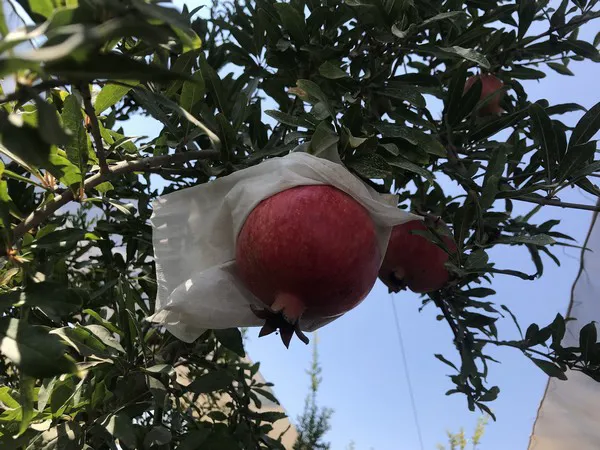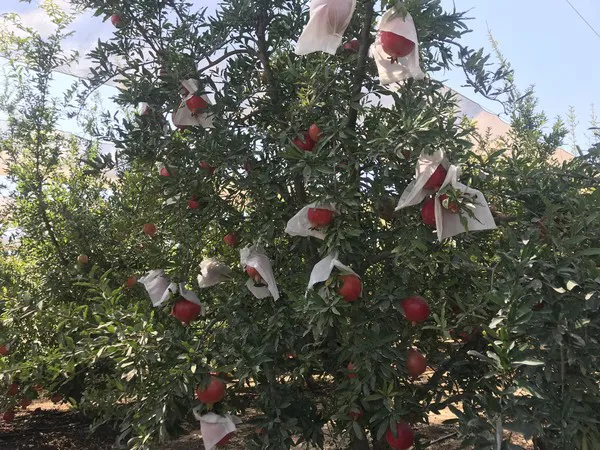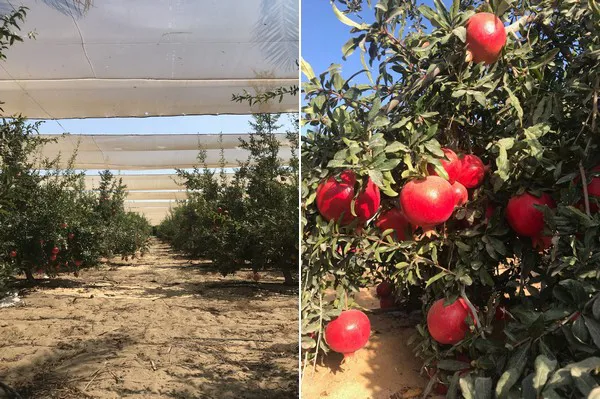For Egyptian pomegranate, two factors are always in play. Getting the right sizes as well as keeping the prices competitive is challenging every season. The season was slightly delayed to get the right color for the clients, but overall there are a lot of markets available for the Egyptian produce.

According to Abdullah Tharwat, business development manager for Pyramids Agro, the Egyptian pomegranate season is all about getting the right sizes for the clients: “The pomegranate season has many challenges regarding both prices and quality this year. Prices of pomegranates are higher, about twenty percent above the price of previous season. The current price in the farms varies from .50$ - .60$. Egyptian pomegranate always face the challenge that you need to sort a lot to get the good quality and sizing to meet the requirements of the orders. We started the season at the end of August and delayed our harvest plan until the fruit reached the color and required acidity that our customers require.”
For most exporters, Iraq is a very interesting market, despite the fact they have local production in the country, Tharwat explains. “Assiut city is the most famous regarding to pomegranate crop as it contains around 20 per cent from the total pomegranate production of Egypt. The main market for their crops is Iraq, as they export large quantities for it. Even though Iraq has its own local production, it starts at the end of October and they prefer the taste of Egyptian pomegranates. This means a lot of Egyptian exporters prefer this market, as they accept a wide range of qualities, which is convenient. On the other side, both the European and Asian markets require high quality and prefer specified sizes, so it costs both time and money, as you need to sort a lot of crops to achieve their requirements.”

The most popular variety for Egyptian pomegranates will start within the next two weeks, Tharwat states. “We expect to start the Wonderful variety at the third week of September. This year we have many scheduled shipments orders by air, so we need to make sure to supply the need of our customers. It will be hard to achieve the demanding quantities, but we will work hard to supply our customer base with our best quality. The Chinese and European market are both solid, but not all companies can afford the required quality and sizing for them. Russia and the Gulf countries have also ordered high quantities, but these markets are not the best option when it comes to the selling prices.”
Competition isn’t something Egyptian pomegranate exporters worry about, as demand is always higher than the supply: “In terms of competition, both Turkey and India do have the same window as us, but pomegranates are different than a product like the onion. Demand for pomegranates is always higher than the supply, so we don’t have to worry as much about competition. We work hard every year to supply our customer base with the required quantities, which is our focus. Our company will have around 3,000 tons available, of which we export 50 per cent and supply the rest to the local market and juice factories.” Tharwat concludes.

For more information:
Abdullah Tharwat
Pyramids Agricultural Investment Co
Tel: +201005027256
Email: Abdallah@pyramids-agriculture.com
www.pyramids-agriculture.com
